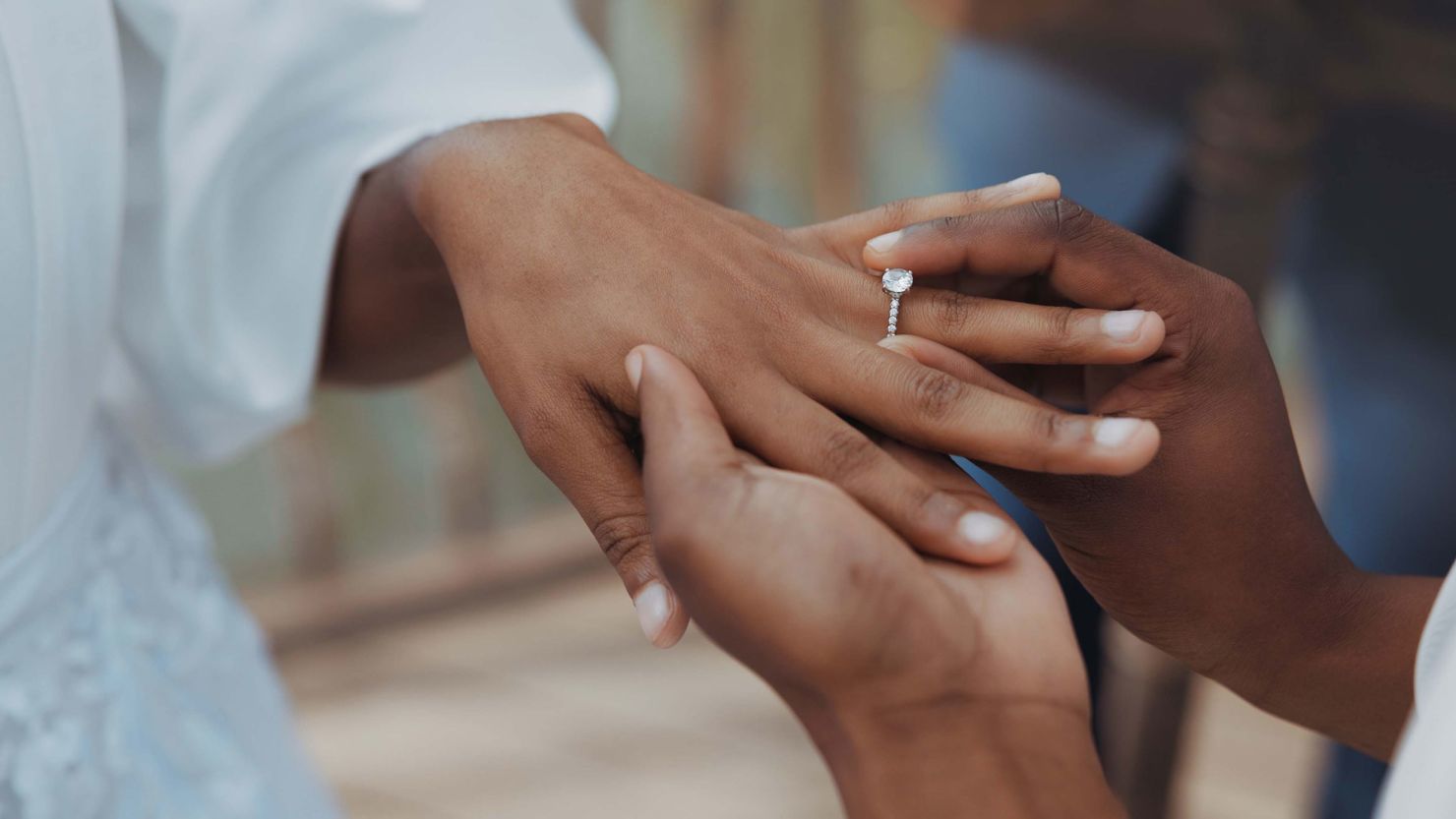Story highlights
Marriage was a stronger indicator of happiness than education, the data showed
Choosing a partner based on friendship vs. passion could be a factor, therapist says
In certain marriages, the data showed a smaller happiness effect, poll author says
Sign up for CNN’s Adulthood, But Better newsletter series. Our seven-part guide has tips to help you make more informed decisions around personal finance, career, wellness and personal connections.
A happier life after getting married may not just be in fairy tales. It’s in the data, too.
Adults who are married report being far happier than those in any other relationship status, according to a Gallup Poll published Friday.
“Any way you analyze those data, we see a fairly large and notable advantage to being married in terms of how people evaluate their life,” said poll author Jonathan Rothwell, principal economist at Gallup.
From 2009 to 2023, more than 2.5 million adults in the United States were asked how they would rate their current life, with zero being the worst possible rating and 10 being the highest. Then the researchers asked respondents what they anticipated their happiness level would be in five years.
To be considered thriving, a person had to rank their current life as a seven or higher and their anticipated future as an eight or higher, according to the survey.
Over the survey period, married people consistently reported their happiness levels higher than their unmarried counterparts, ranging from 12% to 24% higher depending on the year, according to the data.
The gap was there even when researchers adjusted for factors such as age, race, ethnicity, gender and education, the survey said.
Education is a strong predictor of happiness, but the data showed that married adults who did not attend high school evaluate their lives more favorably than unmarried adults with a graduate degree.
“Things like race and age and gender and education matter. But marriage seems to matter more than those things when it comes to something like this measure of kind of living your best life,” said Bradford Wilcox, professor of sociology and director of the National Marriage Project at the University of Virginia. Wilcox reviewed and edited the Gallup Poll research.
“We’re social animals. And as Aristotle said, we are hardwired to connect,” he added.
A difference in how we are picking partners
Maybe the happiness tied to marriage has something to do with what people expect from it, said Ian Kerner, a licensed marriage and family therapist and CNN relationships contributor.
“In my practice over the last decade I’ve noticed a gradual shift from the ‘romantic marriage’ to the ‘companionate marriage,’ meaning that people are increasingly choosing spouses at the outset who are more like best friends than passion-partners,” Kerner said via email.
While doing so may lead to problems with attraction, it also means those people are choosing partners based on qualities likely to promote long-term stability and satisfaction, he said.
“At its bare minimum, the concept of commitment implies the experience of being bonded with another. At its very best, it means being bonded with someone who is a consistent safe and secure home base that will be there for you in the face of any adversities,” said Dr. Monica O’Neal, a Boston psychologist.
Do I need to get married to be happier?
There is a lot that we can learn from the data, but it is difficult to say whether marriage is the reason for higher levels of happiness, Rothwell said.
It could be that people who have qualities that tend to lead to more consistent happiness are also those who would seek out marriage, the survey said.
“There’s also famously, for men anyway, a premium associated with being married in terms of earning higher income,” Rothwell said. “There’s lots of debate in the literature about whether that’s because more successful, charming, intelligent men who have attributes that would lead them to earn more in the labor market are more likely to get married.”
The quality of marriages, however, can vary based on individual circumstances, societal changes and the cultural outlook on marriage, he added.
For example, in communities where marriage is often a practical necessity, the data shows a smaller effect on happiness than in those where individuals feel more able to choose their status and partner, Rothwell said.
And O’Neal doesn’t imagine being in an unhappy marriage will leave you feeling better in life overall.
“I still believe that those who have unhappy marriages, are probably less happy than those who are single,” she said.
Whether married or dating, you can optimize your chances for a happy relationship by communicating well on what your commitment to one another entails, O’Neal said.
“I don’t think we’re ever going to get to a point in social science where we can say whether or not and with any precision whether marriage causes happiness,” Rothwell said.






